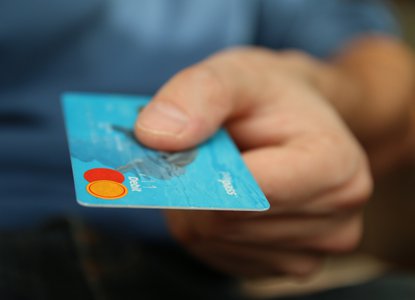How to spot gateways into online gambling
Gambling has really affected me since I was just 16 years old. I got caught up in the world of gambling and would gamble whenever I felt lost, lonely, or angry about my life—it became my coping mechanism. I’ve teamed up with the National Literacy Trust and Experian to discuss some words and language around games that might be closer to online gambling than you think.
What are loot boxes and in-game purchases?
One important thing to keep in mind is that gambling doesn't always look like how you might imagine it. It's important to understand the language around things that may not sound like gambling, but are actually gateways into it. Take loot boxes, for example. A loot box is a virtual item in video games that can be purchased with real money for a chance to win randomised rewards. These rewards can range from cosmetic items to powerful in-game equipment. The thrill of opening a loot box and the anticipation of what you might get can trigger a dopamine rush, similar to the feeling you get when gambling.
In-game purchases, also known as microtransactions, are another form of spending real money within a game. These purchases can include anything from new outfits for your character to special abilities or in-game currency. While they might seem harmless, the constant spending can add up and create a habit that's hard to break.
How loot boxes and in-game purchases are gateways to gambling
Loot boxes and in-game purchases can act as gateways to gambling because they share many similarities with traditional gambling. The randomised nature of loot boxes means you never know what you're going to get, which can be incredibly addictive. It's like playing a slot machine—each time you open a loot box, you're hoping for a big win.
Studies have shown that older adolescents who purchase loot boxes do so for reasons that closely resemble the motivations behind gambling. The randomised nature of loot boxes offers a psychological experience similar to playing a slot machine, which is a known gateway to gambling addiction.
The rise in online gambling among young people in the UK
The rise in online gambling among young people in the UK is a growing concern. According to surveys, a significant percentage of adults participated in a gambling activity in the last 12 months, with a notable portion engaging in online gambling.
Reports have highlighted that the prevalence of loot boxes in video games is contributing to gambling behaviors among young people. Many of the top games on popular app stores contain loot boxes, which are often marketed to children and adolescents, increasing their exposure to gambling-like activities.
Staying in control
So it’s important to check in with yourself and see how much time you are dedicating to things that may not call themselves gambling, but might be having the same effect on your brain. Look out for anything that might urge you to keep playing or invest more time and energy for the chance at winning something that isn't guaranteed. Having some safeguards in place, like limiting screen time, is also really important to stay in control.
By being aware of the risks and realities of online gambling, you can make more informed decisions and protect yourself from falling into harmful patterns. Remember, it's crucial to stay vigilant and critical of the games and activities you engage in, especially when they involve spending real money.
Understanding lootboxes and online gaming
- Parentzone have published a handy parents guide to lootboxes.
- Experian have a database of useful tools regarding official data around gaming.
- Find more information from PEGI on in-game purchases.




